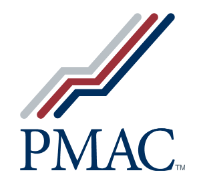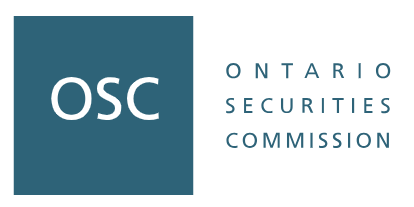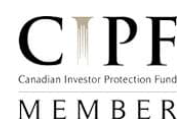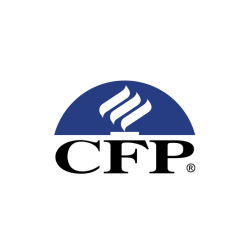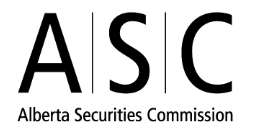Frequently Asked Q's
Thanks for checking us out!
Let's Get Started.....
The Basics
-
What if I already have an account(s) with Interactive Brokers?
Fantastic! We simply send you an electronic invitation to allow SciVest to become the Investment Advisor on your account. It's that easy!
-
How can I make a deposit to my Investment account?
Making a deposit to your accounts is easy and convenient. Just set up a bill payment on your on-line banking: the Payee is your custodian (Interactive Brokers or Aviso) and input your investment account number (remember to tag the account number for yourself - RRSP, TFSA, etc.) Depending on the time of day, the deposit can be reflected in your account within a day or two.
-
How can I make a withdrawal from my account?
Simply send us notice of the amount you wish to withdraw, and we will insure there are funds available for you to withdraw. The account is in your name, so you initiate the withdrawal and the funds are transferred to your bank account.
-
How do I move money between my accounts?
Your direct client portal with your custodian allow you to transfer money between your accounts. Just let us know how much you will be moving so we can insure the cash is available.
-
Is there a minimum account size to start investing with SciVest?
We currently have an account size minimum of $10,000. Our suite of investment options can divided into two categories,
-
Asset Allocation portfolios: Account minimum of $20,000 per portfolio. SciVest has created ten (10) unique, balanced, global Asset Allocation Portfolios that allow you to choose a portfolio that best fits your particular investment goals and risk profile. Each SciVest Asset Allocation Portfolio offers the best level of long-term expected return for its targeted risk profile for the then current economic and market environment.
-
Individual Stock Portfolios: Account minimum varies by strategy, beginning at $12,000. SciVest has created eight (8) Individual Stock Portfolios established from three (3) unique, equity-based, investment strategies each specifically designed to meet specific investment objectives; Low Volatility Dividend Income, Growth of Dividend Income, and Price Momentum Strategies.
-
-
Can I get Quick Access to cash if I want to?
Absolutely. Should you need cash from your investment account, kindly give us a call, or send us an email with the details. We will redeem the necessary investments and have the cash available for withdrawal generally within a day or two.
-
Can I hold Crypto or Bitcoin in my portfolio?
No. At SciVest, we implement very strict stock selection and risk parameters to ensure clients have the best possible portfolios for their individual long-term needs. Should you wish to partake in your own personal trading style, we encourage you to do so in your own separate account.
Custodian Questions
-
What is a Custodian? What do they do?
Your investment account is set up at one of our approved broker/custodians – currently either Interactive Brokers Canada Inc. or Aviso Wealth (Credential Qtrade Securities Inc).
As broker they provide brokerage trade execution of your SciVest Direct separately managed account security trades, and as custodian they hold and protect all of your separately managed account investment portfolio assets. The broker/custodian also provides all tax reporting, as well as Canadian Investor Protection Fund (“CIPF”) insurance on your SciVest Direct separately managed account. Our broker/custodians were chosen because of their large size, safety, service offering, and competitive pricing.
-
How do I choose which Custodian to use?
We will recommend the appropriate custodian based on your needs. Client investment accounts are set up at one of our approved broker/custodians – currently either Interactive Brokers Canada Inc. or Aviso Wealth (Credential Qtrade Securities Inc).
-
Who issues my tax slips?
SciVest is the advisor to the account only.
Your custodian issues all tax slips (Aviso Wealth and/or Interactive Brokers). The custodians look after all administrative processes and they provide all tax slips directly through their client portal. Of course, should you run into difficulties, we are here to assist.
-
Can I have accounts with both custodians?
Yes. It is common for clients to have accounts at different custodians. For example, one might have a TFSA with IB, and a LIRA with Aviso. Each month, SciVest will provide a consolidated account statement that details all of the client holdings by account, by custodian, asset allocation, and also include performance summaries.
Our SciVest statements are cutting edge and pretty fabulous!!
-
Do the custodians charge a fee?
We are a full disclosure operation. Each custodian does have their list of minimal fees, and we discuss the pros & cons of each custodian when recommending an account. You can also check out the websites of each custodian to research the fees for yourself. Feel free to contact us for more information.
-
How do I transfer assets into my SciVest accounts from other financial institutions?
It is quite simple and we generally take care of that for our clients. However, it's pretty easy to do yourself if you chose to. Whichever method is most comfortable for you.
-
How do I move money between my accounts?
Your direct client portal with your custodian allows you to transfer money between your accounts (i.e. transfer from your cash account into your RRSP or TFSA). Just let us know how much you will be moving so we can insure the cash is available.
Personal Circumstance
-
What if my life situation or risk tolerance changes suddenly?
Should you have a life changing event that requires modification of your investment profile, we can discuss and change your IPS to suit your modified situation. Your portfolio can be adjusted generally within a week or so.
-
What if I am not happy with SciVest? How easy is it to leave?
It’s easy. Your accounts are in client name with the custodian – they are your accounts! Should you be disappointed with SciVest in any way, while we hope you would let us know so we could address the issue, we understand that sometimes things don’t work out. Simply go to the “settings” button on your log-in screen and “un-link” SciVest Capital Management Inc. as your advisor. We will be sorry to see you go!
-
I have a pension at another Institution. Can I move it to SciVest?
Quite possibly. Contact our admin team, or your designated Client Relations Advisor and we will review your situation. Just email us at admin@scivest.com and someone will contact you shortly for details. In most circumstances, these accounts are transferable with just quick click of a button.
-
Is it cheaper to transfer all of my assets as they are, or do I need to sell everything first?
Depending on where your accounts are coming from, we may be able to sell your equities at a much deeply discounted rate. The only assets we cannot move over are GICs and Mutual Funds. Therefore, you would have to redeem the Mutual funds prior to transferring into your SciVest account. It is possible to do a partial transfer in the event you carry GICs that need time to mature. Ask our team for assistance - we are here to help!
Some Investment Terminology
-
How does a high management fee affect my returns?
-
Reduced Net Returns: Management fees directly reduce the net returns you receive from your investments. If your portfolio earns a 10% return, but you pay a 1% management fee, your net return becomes 9%. Over time, this difference compounds significantly.
-
Compounding Effect: Fees erode the power of compounding. Even seemingly small fees can have a substantial impact over long investment horizons. For instance, consider an investment of $100,000 with a 1% annual fee. Over 30 years, that fee could cost you around $30,000 in lost returns!
-
Benchmark Comparison: Compare your investment’s performance to a relevant benchmark (like an index). If your portfolio consistently underperforms after accounting for fees, it might be time to reassess.
-
Active vs. Passive Management: Active management (where professionals actively select investments) tends to have higher fees than passive management (such as index funds). Ensure the added value justifies the cost.
-
Fee Transparency: Understand the fee structure. Some fees are explicit (e.g., advisory fees), while others are embedded in fund expenses (e.g., expense ratios).
-
Tax Efficiency: High fees can impact tax efficiency. For taxable accounts, consider tax-efficient strategies to minimize the impact.
Always stay informed and make informed decisions!
-
-
What is an MER on a fund, and why am I paying it?
The Management Expense Ratio, or MER is the fee that covers the costs of operating the Fund.
MER = Management Fees + Admin costs + other expenses (i.e. trade fees & commissions)
-
What is a dividend?
A dividend is a portion of a company's earnings that is paid out to shareholders, usually on a quarterly basis. Dividends have preferred tax treatment over interest payments, so they are a preferred income stream from non-registered investments.
-
What is Growing Dividend Income?
Growing dividend income refers to the strategy of investing in stocks that not only pay dividends, but also have a history of increasing their dividend payouts over time. This approach is popular for those seeking a steady and increasing stream of income from their investments.
Investing in companies with a track record of growing dividends can be a way to build wealth over time, as the increasing payouts can provide a hedge against inflation and contribute to the overall growth of an investment portfolio.
-
How does inflation affect my returns?
Inflation impacts your investment returns by:
- Reducing your purchasing power: Your money buys less over time.
- Affecting your "Real Returns":
*Real Return= Total Return less the Inflation rate. - Impact on Returns Vary by Asset Class:
-
- Bonds: Fixed returns may lose value.
- Stocks: Some may perform better, especially those with pricing power.

